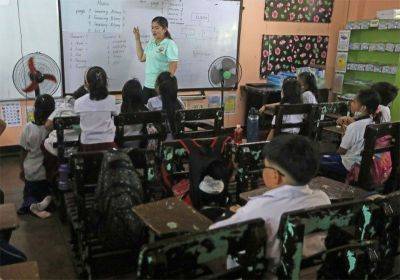Most Filipino families not reaping long-term gains of preschool education
MANILA, Philippines — Parents’ lack of awareness about the long-term gains of preschool education and limited government daycare centers have made most Filipino children lose out on the benefits of early childhood education.
A new report by the Second Congressional Commission on Education (Edcom II) shows that while a slew of laws has been passed since 2000 to widen access to early childhood education, 12-year data up to 2022 shows that fewer than half of all children aged 3 to 4 years old attended preschool.
The long-term benefits of enrolling children in preschool are well-documented as studies that show children who did not enroll in preschool "have higher chances of dropping out and lower chances of attaining upper levels of schooling,” said the report by Edcom II in collaboration with state think tank Philippine Institute for Development Studies.
Meanwhile, UNICEF’s 2019 analysis of a 2019 international assessment found that children who attended just one year of early education programs were “seven times more likely” to have mastered the fundamental reading skills expected by the end of elementary school and “four times more likely” to have learned the same for mathematics.
Edcom II said that the Philippines — a country where learning poverty is at 91% — still struggles to reap the gains from early childhood education due to parents’ lack of knowledge about how or why their children should go to school at 3 years old, as well as limited and inaccessible daycare or child development centers in rural areas.
As a result, participation rates have remained “stagnant” from 2011 to 2024, according to Edcom II, with modest gains derailed by the COVID-19 pandemic. As of 2022 (latest available data), only 20% or one out of five children aged 3-4 years old were enrolled in pre-kindergarten programs.
“Many parents of 3- to 4-year-old children opt out of early education programs because they believe it is premature for educational activities, a perception observed across poor and affluent households,” Edcom II said in its report.
According to a 2019 survey among parents cited by Edcom II, financial constraints and available of early education programs make up only







